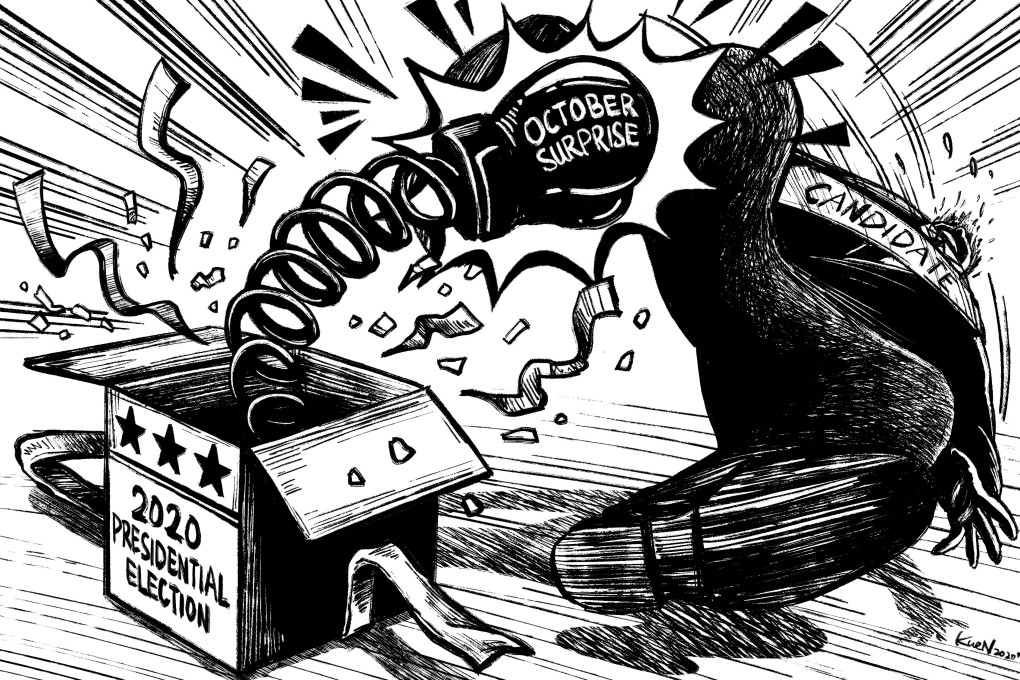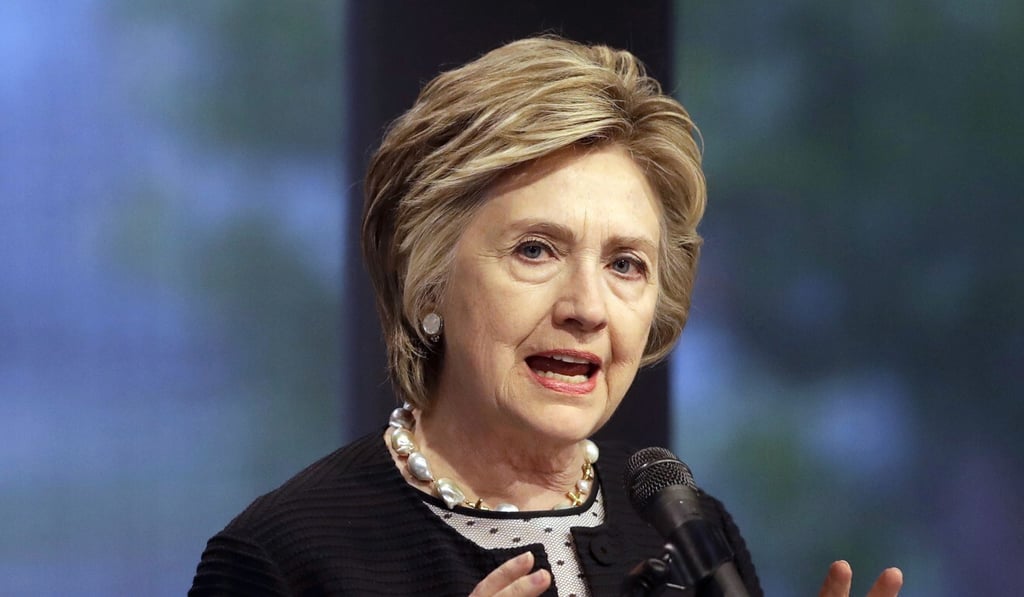Just ask Clinton; US presidential election can flip on the ‘October surprise’
- Republicans and Democrats eye each other with suspicion as campaigns look for vote-shifting shock event in presidential contest
- Undecided and swing voters in close races can be won or lost in the weeks leading up to election, history shows

As voters in the United States prepare for the presidential election in November, the South China Morning Post explores the potential ramifications for China. In the latest instalment in our US election series, Eduardo Baptista examines the history of the ‘October surprise’ and asks what the campaigns may have up their sleeves.
When then-FBI director James Comey notified Congress on October 28, 2016, that an investigation into Democratic Party presidential candidate Hillary Clinton was being reopened, the timing was everything. It came in October, just 11 days before Americans went to the voting booths to elect a new president.
FiveThirtyEight, a US media outlet that analyses polling data, calculated that the announcement shifted voter patterns by at least one percentage point in so-called swing states like Michigan, Pennsylvania, and Wisconsin. As Trump won these states by a smaller margin than that, FiveThirtyEight surmises Comey’s announcement may have been the X-factor in the 2016 presidential election.
Such incidents are known in US political jargon as an “October surprise”, named because events in the month – contrived or otherwise – can have an outsize influence on US presidential elections, which are held in early November.

James Carafano, vice-president of conservative think tank The Heritage Foundation’s Kathryn and Shelby Davis Institute for National Security and Foreign Policy, said an October surprise could make the difference among undecided or swing voters. “It’s just a fact of history that voters are often more influenced by the things in the run-up to the election than things that happened a while ago.”